Vitamin E and Acne: Is it Effective?
By Abby Vinas
Acne Treatment
•
6 Comments

Vitamin E has long been praised as one of the biggest contributing factors to bodily health. Many people consider Vitamin E essential for prevention of heart disease, cancer, diabetes, cataracts, and Alzheimer’s disease. While the truth of these claims is still up for debate, the fact remains that Vitamin E has some major health benefits that are associated with skin health. For example, it has anti-inflammatory properties, can help boost the immune system, and helps alleviate dryness and itching, making it useful for treating acne, psoriasis, and eczema. We’ll explore what exactly Vitamin E is and how you can use Vitamin E for acne.
What is Vitamin E?
Vitamin E is a group of chemical compounds most commonly found in oils, leafy greens, and other vegetables. It is a fat-soluble antioxidant, which means that it is stored in fatty tissues and travels through the lymphatic system to get to the bloodstream. When ingested, Vitamin E typically stays in the body for long periods of time. According to the Mayo Clinic, it has antioxidant properties in that it helps inhibit free radicals, which can damage skin as well as other parts of the body. The main function of Vitamin E is to support cell membranes, increase blood flow, and strengthen muscles, the heart, and the skin.
Research on Vitamin E for Acne
Vitamin E is widely considered to be one of the most effective skin and acne treatments. But do all these claims ring true? Don’t run to the store to grab a bottle of Vitamin E oil just yet. Here are the things you must consider before using Vitamin E oil for acne.
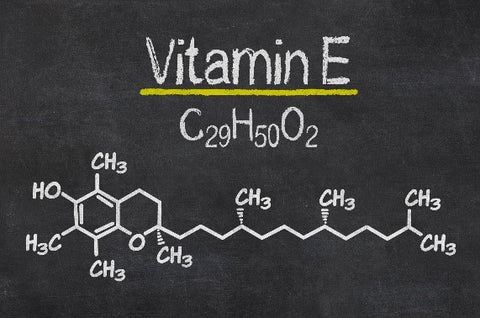
Vitamin E Oil Helps Retain Moisture
The moisturizing component of Vitamin E allows your skin to retain its natural oils instead of drying out. This makes Vitamin E ideal for those who have naturally dry skin, which can become tight and itchy. Vitamin E can keep skin hydrated and glowing, thus reducing the potential of acne on dry skin. It can also be beneficial for those who experience psoriasis and eczema, although individuals with skin conditions like these typically also incorporate other treatments. While the moisturizing effects of Vitamin E may be enticing, proceed with caution. The oil itself is so thick and greasy that it can have the opposite effect on skin if used incorrectly or excessively.
Clearer skin in as little as two weeks.
This 3-step routine combines the most effective (clinically-proven) acne fighting ingredients with powerful plant intelligence to leave your skin nourished, refreshed, and clear.
Try Some
Not Good for Oily Skin
If you have oily skin, unfortunately Vitamin E oil is not ideal for your skin type. It doesn’t have any serious side effects, but has the potential to clog your pores. Not to worry, there are plenty of other acne treatment options out there!
Fades Scars and Dark Spots
Vitamin E is best known as a treatment for scars and dark spots that occur on the skin, particularly those that are left behind from breakouts. Many people believe this is because Vitamin E helps rebuild tissue, so it may assist in fading scars and boost the healing process. However, many studies suggest this isn’t true. It is true that natural collagen in the skin helps form scar tissue, and Vitamin E can manipulate the formation of that collagen, but it doesn’t mean that applying Vitamin E is a magic cure. Your body will go through the natural process of healing whether or not you apply Vitamin E oil.
Promotes Tissue Repair from Sun Damage
According to Dermatology Research and Practice from Hindawi, the antioxidant properties of Vitamin E in conjunction with Vitamin C, glutathione, uric acid, and ubiquinol all play a part in enhancing the DNA enzyme repair systems to keep skin from harmful carcinogens such as prolonged exposure to UV rays. What this implies is that our skin is receptive to the antioxidant healing factors that keep skin protected before the damage may even begin. In addition to helping reduce UV damage, it can be used to relieve and soothe the effects of sunburn to prevent further harm.
Visibly Reduces Signs of Aging
As mentioned before, the antioxidant properties of Vitamin E reduce free radical damage. Just like in relation to UV ray damage, there is evidence to suggest that Vitamin E reduces signs of aging. The anti-inflammatory properties of Vitamin E can slow the progression of wrinkles and environmental damage such as smoke. However, this will not dramatically reduce signs of aging due to certain lifestyle habits such as smoking or tanning.
How to Use Vitamin E for Acne
Essential vitamins are those that are not naturally made in the body, and therefore must be taken from an external resource like food or a product. Vitamin E is one of these essential vitamins, and therefore it is critical you take in the proper amount to maintain balanced nutrition both on and below the skin’s surface. Here are the top 3 ways to use Vitamin E for acne and help keep skin clear.
1. Use Vitamin E Oil
The most common way people treat skin with Vitamin E is by using a Vitamin E oil. There are two basic ways to use an oil: applying it directly to your skin or adding it to your favorite moisturizer.
When applying it directly, optimize its effectiveness and get the best results by applying it only at night. While you sleep, your body performs most of its reconstructive work, going through processes to regenerate and heal itself. To use Vitamin E oil for acne, simply dampen your face, pat it dry, and apply a thin layer to the skin, starting with a small dab. Gently wash it off when you wake up in the morning.
You can also add Vitamin E oil to your moisturizer, adding just a few drops to enhance the moisturizer’s benefits and decrease the likelihood of going overboard with the oil.
Like all other steps in your skincare routine, remember to do a patch test before using vitamin E oil on your entire face. To do so, appy a small amount to an area of skin and carefully monitor how it reacts, checking on the area after 24-48 hours. This helps avoid potential allergic reactions.
2. Add Vitamin E to Your Diet
Sometimes, applying Vitamin E topically isn’t enough. Healthy skin starts with a healthy diet, and luckily, a lot of healthy foods are packed with Vitamin E. Leafy greens, avocados, sweet potatoes, almonds, butternut squash, olive oil, and other foods are excellent sources of Vitamin E.

3. Combine It With Vitamin C
Vitamin E in combination with Vitamin C creates an enhanced immune system and contributes to heart health. A better immune system means better body function, which is a holistic solution to poor skin health.
Potential Risks of Vitamin E
Before getting carried away with using Vitamin E for acne, it’s important to be aware of the precautions. According to the American Diabetes Association, too much Vitamin E in the body is suggested to increase the risk of diabetes and cardiovascular disease. The recommended dosage of Vitamin E is about 1500 IU per day. More than this can cause hypervitaminosis E, vitamin K deficiency, and bleeding problems so never go over the recommended dosage. If you do, consult a doctor if you experience symptoms of these conditions.
Other Essential Vitamins
Vitamin D
Vitamin D is an essential vitamin that the body needs to maintain strong, healthy bones, and is involved in your immune and nervous systems. There are several ways to get Vitamin D, including through sun exposure, although this runs the risk of skin damage and skin cancer. Instead, you can get Vitamin D by eating foods that are naturally rich in Vitamin D, or by taking supplements.
Vitamin B5
Vitamin B5, also known as pantothenic acid, is claimed to be effective in healing wounds by helping to decrease inflammation and shortening the healing process. This means that Vitamin B5 can be helpful if you have inflammatory acne. However, Vitamin B5 shouldn’t be used as your sole solution as there are many other acne treatment options available.
Vitamin A
Of all the essential vitamins, you’ve likely heard of using Vitamin A for acne. Vitamin A in the form of retinoids can be effective in treating acne since it helps remove buildup of skin cells to prevent clogged pores. It also helps protect against UV damage and visibly reduce signs of aging like fine lines and wrinkles.
Conclusion
Vitamin E is not a cure-all for acne or acne scars. However, it can moisturize dry skin to prevent irritation. For those with dry skin, a thin oil mask can create a glowing and more radiant look. While some studies are inconclusive about the effects of Vitamin E in some skin care cases, the fact remains that this can be a good alternative for moderate to dry skin. Consult a dermatologist to find the solution that works best for your skin.

Abby Vinas
Abby Vinas has long been an active member of the holistic health community, advocating in favor of its benefits to both our physical and emotional well-being. Her commitment to leading a healthy lifestyle has made her an authority on self-care practices. Abby is passionate about fitness, nutrition, and proper skincare, and is also an avid lover of avocado toast and dog-petting.
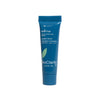
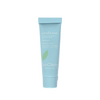
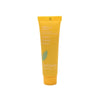
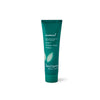









please let me know which one u suggested to use ? For example : one vitamin E capsule which we can get from Pharmacy with 200 or 400 power or another one which we can get from cosmetics shops. plz ans me as soon as possible.
Thank you.